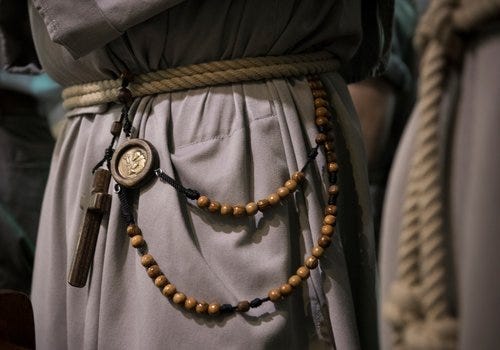Lawsuit alleges serial assault by CFR Franciscan
News: Franciscan Friars of the Renewal
A lawsuit against the Franciscan Friars of the Renewal alleges that a woman was serially sexually assaulted by a priest of the order.
While the priest - Fr. Louis Leonelli - says he had a consenting relationship with the woman, her attorney insists that no sexual relationship between a spiritual director and his …

